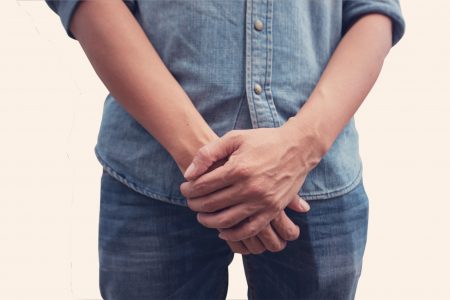Movember: Mental Health & Erectile Dysfunction
Posted by Christina Pistotnik

The Movember Foundation continues to work to destigmatize men’s mental health by bringing to light that men do experience mental health issues and that it is a real concern.
Stats Canada states that suicide rates are 3x higher in men than in women.
Mental Health not only affects people on an emotional and psychological level but on a physical one as well. Erectile Dysfunction (ED) is a common occurrence for those dealing with anxiety, depression, and high stress levels.
Experiencing ED can also lead to a negative cycle of emotions creating more anxiety, low self-esteem and guilt (often associated with not being able to pleasure their partner). Therefore if you are experiencing ED, it is important to speak with your doctor about it, in order to get psychological support and/or to look into further causes. This is because there is also an association between ED and cardiovascular disease, diabetes, and obesity.
Treatment Options
Of course, there is always medication that can help with erectile dysfunction and most people think about that little blue pill – known as Viagra, that has been marketed so well to help solve ED.
However, if there is a mental health disturbance going on, it is more beneficial to deal with the underlying issues for prolonged effectiveness of resolving erectile dysfunction.
Counselling
There are different types of therapy that have been shown to help with erectile dysfunction. Evidence has shown that group, individual, or Cognitive Behavioural Sex Therapy (CBST) has helped to resolve ED (1,2). The best outcomes were seen when treatment was combined with psychological treatments and with medication (i.e. Viagra) compared to medication alone (1,2).
Psychological treatment is most likely to be helpful for those who:
- Wake up in the morning with an erect penis
- Are going through or have gone through a stressful major life event, such as divorce, separation, death of a loved one, change in job, or moving.
- Grew up in an environment where sex and sexuality were considered negative, wrong, or “bad,” or who were sexually or physically abused as a child.
- Lost a parent during early childhood.
- Have a history of serious relationship problems.
- Have a history of anxiety disorders
Acupuncture
There is promising data to show that acupuncture can help with erectile dysfunction but the data is limited. A prospective study looked at the effectiveness of acupuncture in patients with psychogenic erectile dysfunction (3).
The participants were placed in two groups, one group had acupuncture in the specific spots for ED. The control group was given acupuncture in other areas of the body that are typically used to treat headaches.
Over 60% of those in the group getting acupuncture in the ED treatment showed signs of improvement of their ED symptoms compared to the control group.
Some in the control group were allowed to crossover and receive the ED treatments as well. Several of those patients also showed improvement of ED symptoms.
Another 21.05% of the patients had improved erections with simultaneous acupuncture treatments with 50 gm sildenafil (Viagra).
Now I know what you are thinking, where exactly do the needles go when treating erectile dysfunction? I get this question all the time, followed by another sheepishly asked question: “do the needles go near or in the genitalia?” The answer is a big “NO”. For ED treatment, acupuncture needles are placed in the legs, hands, abdomen and/or back.
Partner Support
The importance of communication and listening to your partner cannot be stressed enough. Providing support and taking an active role in your partner’s treatment will help them navigate things in a positive way and take some of the shame away. It will also be important to keep a positive attitude and be open to trying new ways of experiencing intimacy. Putting pressure on your partner will only lead them to have more problems with erectile dysfunction rather than resolving them.
Contact us to find out more about how we can support you and if you would like to know more about Movember and how to support mental health please visit the Movember Foundation
